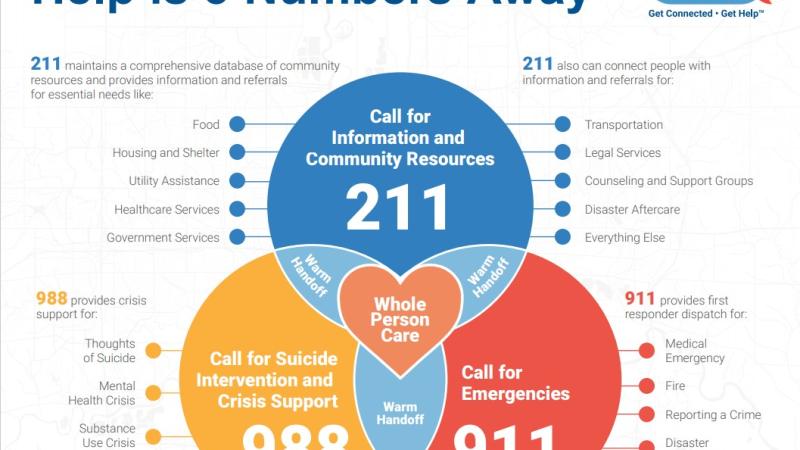
April 14, 2021
The last year of the COVID-19 pandemic has been hard! With all the stress of the last 12-plus months, many people are turning more frequently to a glass of wine, liquor or beer to get a break. You may even notice for yourself that the frequency or amount of alcohol you consume has gradually crept higher as the pandemic wears on. But how do we know when alcohol consumption crosses over from a relatively harmless enjoyment for many people to a health risk?
When it comes to alcohol, moderation is key. Health guidelines differ for men and women based on physiological differences in alcohol metabolism. For women, no more than seven standard drinks per week and no more than three drinks in a 24-hour period are recommended. For men, no more than 14 drinks per week and no more than four drinks in a 24-hour period are recommended. A standard drink is a 12-ounce beer, 5-ounce glass of wine or 1.5 ounces of liquor. Remember, it is never safe to drink and drive. Drinking and driving is a risk to your health and the health of your community.
Trying to follow the health guidelines for limiting alcohol intake is a good starting point to preserve your health and wellness; however, there are still many misconceptions or myths that create confusion about alcohol. Given the increase in alcohol intake that has occurred during the COVID-19 pandemic, we wanted to take a moment to address some of the common misunderstandings or myths about alcohol in order to keep our community healthy.
Myth: Alcohol helps my stress.
Many people get a sense that alcohol “takes the edge off.” This happens because of some of the slowing of signals in your nervous system. Over time, this effect tends to diminish. With time, excessive alcohol use tends to increase stress, depression and anxiety as your body’s signals are forced to adapt.
Recommendations: Try other stress management approaches (e.g., hike, meditate, listening to music, take a break from technology/screen-time, talk to a therapist).
Myth: It’s okay to drink heavily on rare/special occasions.
Twenty-four percent of Americans report binge drinking, which is five or more standard drinks for men (four or more for women) on one occasion. Although this may seem harmless, it can have dramatic health impacts even if done rarely.
Recommendations: Keep it to four drinks or fewer for men (three or fewer for women) even on rare/special occasions. Alternate with or transition to nonalcoholic beverages so as not to exceed recommended daily limits.
Myth: Alcohol is only bad for the liver.
In reality, alcohol is associated with over 200 diseases and injury-related conditions. Some of the most common include heart failure, high blood pressure, certain types of cancer, depression, anxiety, accidents and weight gain. Tragically, alcohol is also a very potent risk factor for suicide, homicide and motor-vehicle accidents.
Recommendation: Stay within the recommended limits for alcohol intake. Be mindful of situations for which zero alcohol is recommended, such as pregnancy, those with alcohol use disorder, and when taking certain medications (always discuss with your doctor).
Myth: Alcohol helps me sleep.
Alcohol causes our brain to be sedated, like when getting anesthesia for a surgery, however, it does not promote the sleep patterns that are necessary for regeneration and growth. Excessive alcohol consumption is actually one of the more common causes of insomnia.
Recommendations: If you are having difficulty sleeping through the night, cut back or eliminate alcohol consumption as this may significantly improve sleep and improve overall health.
Myth: I don’t drink “hard” alcohol – so it’s not too bad.
Different types of drinks have various amounts of alcohol. Whatever you drink, it is important to know your alcohol content so you can adapt how much you drink.
Recommendation: For a great resource, please visit: Rethinking Drinking Homepage - NIAAA (nih.gov)
Myth: If I want to reduce or eliminate alcohol, I need to do it “cold turkey.”
At high levels of alcohol consumption, quitting without medical support can be life-threatening. Many therapies and medications exist that can help you reach your goals related to alcohol.
Recommendations: If you have concerns about alcohol consumption or want support in cutting back, ask your health care provider about treatment options.
Lots of misinformation exists about alcohol and the impact it can have on your health. The bottom line is that if you choose to drink, please enjoy in moderation to avoid potential negative health consequences. If your alcohol consumption exceeds the limit recommended by health guidelines, take steps to cut back and talk to your health care provider for additional support.
Kaile Ross, Ph.D. is a clinical psychologist at St. Peter’s Health.
Dr. Kyle Moore is a family medicine physician and addiction medicine specialist at St. Peter’s Health.


